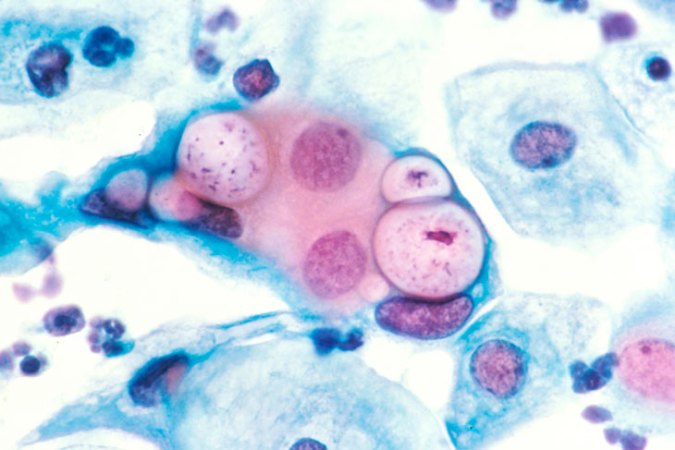
VACCINE NEEDED Researchers reported promising results in a test in humans for a vaccine against chlamydia, which causes around 131 million new infections worldwide each year.
MarianVejcik/iStock/Getty Images Plus
The first vaccine against chlamydia has passed its first test in humans.
About three dozen healthy women were randomly assigned one of two versions of a chlamydia vaccine or a placebo treatment in a clinical trial. Both vaccine versions were shown to be safe, and both produced an immune response not seen in the placebo group, researchers report online August 12 in the Lancet Infectious Diseases.
“These promising results provide encouragement,” says pediatric infectious disease specialist Toni Darville of the University of North Carolina School of Medicine in Chapel Hill, who coauthored a commentary accompanying the study. Chlamydia can lead to disabling, long-term complications for women, so a vaccine against the disease could have a big effect on public health, she says.
Chlamydia, caused by the bacterium Chlamydia trachomatis, is one of the most common sexually transmitted diseases, with around 131 million women and men newly infected worldwide each year. In the United States, it’s the most frequently reported sexually transmitted infection caused by bacteria, with at least 1.7 million cases in 2017, according to the U.S. Centers for Disease Control and Prevention. But those numbers could be low, researchers say, as infections can go unreported: The disease can produce general symptoms that may not be recognized as chlamydia, such as genital discharge or pain or no symptoms at all.

Antibiotics can clear a chlamydia infection from the body. But left untreated, the disease can wreak reproductive havoc on women. An infection targets the cervix, and, for about 1 in 6 women, spreads to the uterus and fallopian tubes where it can cause pelvic inflammatory disease and infertility.
“The percentage of women who develop these long-term complications is relatively low,” Darville says. But the high number of infections overall, she says, means that “a significant number of women” go on to have chronic pelvic pain or infertility, or both.
Developing a vaccine that protects against C. trachomatis is challenging, however, because the bacteria live a complex life within the human body. During an infection, the microbes make their way inside cells that line the reproductive organs. Based on studies in animals, researchers expect that a successful vaccine needs to provoke a strong immune response in two key ways: with antibodies, to fight the bacteria outside of cells, and with immune system proteins and cells, such as T cells, that help to clear bacteria from within infected cells.
In the clinical trial, immunologist and vaccine researcher Robin Shattock of Imperial College London and colleagues tested two versions of a chlamydia vaccine. Both versions triggered an immune response, via antibodies and T cells, but one formulation performed better than the other. Further testing will proceed with that version. The next step will be to see if the vaccine prevents infection compared with a placebo, and would involve volunteers who are at risk of infection, Shattock says.
If the vaccine passes the next clinical tests and is approved for use, the ideal age to vaccinate girls and boys would be around 11 or 12, roughly the same as for the human papillomavirus, or HPV, vaccine (SN Online: 4/28/17). “We are cautiously optimistic,” Shattock says. “A vaccine against chlamydia is an important unmet need.”







